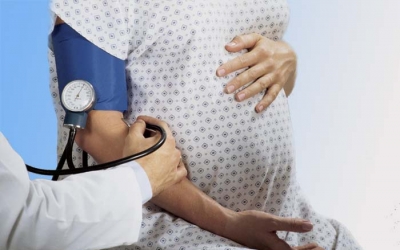- Latest news▼
-
17:45, May 20 The Lancet: rising temperatures exacerbate dementia and increase risk of stroke

-
13:27, May 20 Behavior Research and Therapy: Women react faster and stronger to negative impulses, study finds

-
18:28, May 18 UK woman has huge hole in her leg due to wrong diagnosis by doctors

-
17:35, May 17 WHO updates list of drug-resistant bacteria most threatening to human health

-
08:36, May 17 Gene discovered that plays important role in prostate cancer treatment

-
17:28, May 16 Up to 246 million older people may be exposed to heat risk by 2050 due to global warming

-
11:11, May 16 JARRL: it takes more than 12 weeks of exercise to improve cerebral blood flow

-
08:33, May 16 Cause of sudden death from heart attack is determined

-
18:24, May 15 Journal of Nutrition, Health & Aging: Moderate wine consumption reduces inflammation in the body

-
15:33, May 15 Conjoined twins in Indonesia born fused together like a 'spider' in ultra rare case

-
17:07, May 14 Armenia gets $780,000 grant to fight diabetes complications

-
11:59, May 14 Smart bandage created in Russia to treat wounds based on electrostimulation

-
19:31, May 13 Daily Mail: black beans and walnuts increase life expectancy

-
17:01, May 13 In 2024, 399 cases of measles infection confirmed in Armenia

-
13:14, May 13 Nature Medicine: New genetic form of Alzheimer's disease discovered

All materials
Metformin could be key to treating pre-eclampsia

MELBOURNE researchers believe they have discovered a treatment for the life-threatening pregnancy complication of pre-eclampsia.
Mercy Health clinicians are preparing to test a daily tablet in high-risk pregnant women, after studies on human tissue showed the drug Metformin could decrease the release of toxins from the placenta and heal injured blood vessels.
Lead author Dr Fiona Brownfoot said the only cure currently for pre-eclampsia was to deliver the baby.
While this saved the mother from dangerously high blood pressure, it usually resulted in a premature birth from which some babies did not survive or were left with disabilities.
More than 100 women and 400 babies worldwide die of pre-eclampsia every day.
The cause of it is not fully understood, but involves the placenta releasing toxins into the mother’s bloodstream. This raises blood pressure and damages blood vessels and vital organs.
Dr Brownfoot said the study shed further light on this disease process, suggesting it was an increase in the activity of mitochondria, the energy powerhouses of cells, that was behind the release of toxins.
Using samples from cord blood and the placenta from women with and without pre-eclampsia, the team treated the tissue with Metformin to analyse its effect.
They found the drug could halve the level of toxins secreted from the placenta and stabilised blood vessels.
Dr Brownfoot said they believed the drug worked by blocking a protein in the mitochondria.
“As this drug is already used to treat diabetes in pregnancy, we expect we’ll be able to progress to clinical trials next year,” Dr Brownfoot said.
“We would be keen to try Metformin to see if it could be a prevention from the start of pregnancy, and also a treatment to stabilise the condition and buy the baby more time.
“We know that those at risk are first-time mums, women who’ve had pre-eclampsia before or have a family history, and those with diabetes or who are overweight or obese.”
The findings were published in the American Journal of Obstetrics and Gynecology.
Follow NEWS.am Medicine on Facebook and Twitter
- Video
- Event calendar
- Archive
- Most read
month
week
day
- Conjoined twins in Indonesia born fused together like a 'spider' in ultra rare case 1523
- Armenia gets $780,000 grant to fight diabetes complications 1511
- Smart bandage created in Russia to treat wounds based on electrostimulation 1449
- Up to 246 million older people may be exposed to heat risk by 2050 due to global warming 1181
- WHO updates list of drug-resistant bacteria most threatening to human health 1034
- Cause of sudden death from heart attack is determined 1030
- Journal of Nutrition, Health & Aging: Moderate wine consumption reduces inflammation in the body 1007
- JARRL: it takes more than 12 weeks of exercise to improve cerebral blood flow 969
- Gene discovered that plays important role in prostate cancer treatment 854
- UK woman has huge hole in her leg due to wrong diagnosis by doctors 292
- Behavior Research and Therapy: Women react faster and stronger to negative impulses, study finds 214
- The Lancet: rising temperatures exacerbate dementia and increase risk of stroke 121
- Find us on Facebook
- Poll





